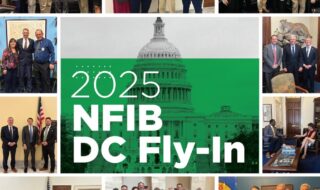U.S. Supreme Court Ruling Threatens Responsible Succession Planning for Small Businesses
U.S. Supreme Court Ruling Threatens Responsible Succession Planning for Small Businesses
June 6, 2024 Last Edit: July 29, 2024
Connelly v. U.S. concerns life insurance proceeds and the estate tax
WASHINGTON, D.C. (June 6, 2024) – NFIB is disappointed in today’s ruling in Thomas Connelly v. United States of America at the U.S. Supreme Court. The Court upheld the decision of the Court of Appeals, which will make the transfer of a closely held business even more difficult following the death of a small business owner. NFIB filed an amicus brief in the case with the U.S. Chamber Litigation Center extolling the importance of redemption agreements for Main Street businesses.
“This decision enables the IRS to continue taxing small businesses based on an artificial and inflated assessment of the company’s worth following the death of an owner,” said, Beth Milito, Executive Director of NFIB’s Small Business Legal Center. “As the IRS continues shifting their position to maximize tax liability, small businesses are left unsure on how to best prepare for the inevitable. Long-term succession plans can be the difference between a small business passing to the next generation or closing its doors for good. This ruling only intensifies the challenges small business owners and their families face.”
The case questioned whether the proceeds of a life insurance policy taken out by a closely held company on a shareholder constitutes an asset of the company when calculating the value of the shareholder’s shares for purposes of the federal estate tax.
The NFIB Small Business Legal Center protects the rights of small business owners in the nation’s courts. NFIB is currently active in more than 40 cases in federal and state courts across the country and in the U.S. Supreme Court.
NFIB is a member-driven organization advocating on behalf of small and independent businesses nationwide.
Related Articles














